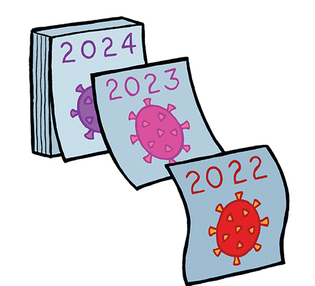
Gregory Nemec
Covid-19 to stabilize in 2024? Using mathematical modeling and virus exposure experiments with rats, Yale researchers have determined that COVID-19 in the US will likely stabilize into an endemic state in about two years. In an endemic state, the virus will appear in predictable patterns, much like the flu and the common cold. But Professor Caroline Zeiss of the Yale School of Medicine emphasizes that “endemic” does not mean “safe.” Rather, it means that the virus has reached a fairly stable, reproducible rate of recirculating in the population—but it could still mutate, and those susceptible are still likely to be infected.
Moreover, the larger global population is still vulnerable to a prolonged pandemic. And “until we have global endemicity,” Zeiss warns, “the COVID situation will not be stable here.”
Drought and children Diarrheal illness is a leading killer of young children worldwide. Case numbers often rise after heavy rains and flooding. Moreover, Yale researchers have now found that children living in extended drought are also at greater risk of diarrheal illness—an alarming discovery, because climate change is increasing drought frequency and severity.
The researchers examined three decades’ worth of international health surveys and climate data, and found that drought may raise the risk of diarrhea among children under age five in low- and middle-income countries. Improving access to water and sanitation is essential. But “the vicious toll of drought-related diarrhea will not be mitigated simply by better handwashing,” says Yale School of Public Health assistant professor Kai Chen, a senior author on the study and director of research at the Yale Center on Climate Change and Health. “We need to tackle the root causes of climate change.”
 loading
loading